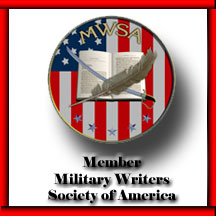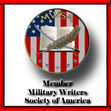|
Another miracle, I thought, turning off West End and easing my Beetle into a space in front of Jack's apartment on the corner of 86th. An hour earlier I had called him from visiting officers quarters at Fort Hamilton. His wife, Carol, answered. "Jack is busy right now," she said, a brush-off. "Tell me what this is about, maybe I can help you." My cousin Jack Gelber was in the theatre. He taught drama at Yale and Columbia, and would go on to head the creative writing program at Brooklyn College. But in those waning days of 1966 he was best known as a playwright, author of The Connection, a penetrating look at the desperation of strung-out heroin addicts. Produced off-off-Broadway, its use of language had created a sensation. The play was made into a critically acclaimed movie, and launched Jack's career. While I was close to his younger brother, David, I hadn't seen Jack since childhood. "Tell Jack that his cousin Marvin is visiting New York for the first time and would dearly love to see him." A moment later Jack came on the line. "The Cub Scout!" he yelled. "You made it home alive! Look, I've got a house full of people, and we're just about to sit down to dinner. Where are you?" He recited driving directions. "Leave right now, stay clear of Midtown, and you should get here for dessert. We'll save you a plate." Half an hour later a woman in a serving apron took my coat and my cousin went around the room with introductions, but after Billy, Sandy, Norm and somebody and Suzie, Linda and somebody and somebody else, I gave up trying to remembering names. Since my call, Jack had called his mother, or perhaps mine, because he introduced me as "my cousin, just back from Vietnam, where he won a Purple Heart, a Bronze Star and a battlefield commission." What Jack omitted was that I went to Vietnam as a rookie combat photographer, had learned to write news copy, and that circumstances had propelled me into becoming the First Cavalry Division public information officer’s go-to guy. It was a high-profile job. My reward—a field promotion to second lieutenant—was such a rare event and so unexpected that I hadn’t yet grasped its full implications. Fifteen months with combat pay, no taxes and little to spend money on had enabled me to save enough to buy a new VW. A week trying to referee the interminable battle between my parents was all I could take, so after seeing a few friends, I took my leave of Los Angeles and sought the solace of the open road. I had a month to report to Fort Benning, and I was hungry for America. Covering only 200 miles a day, I reacquainted myself with the comforts that Americans take for granted, the small amenities that are unimaginable luxuries to a grunt in a war zone. I stopped in little towns and small cities to shake the stench of Vietnam, looking at the country of my birth with new eyes. I reveled in the hygiene of cheap motels: crisp white sheets faintly scented with citrus, fluffy fresh towels, water that didn't reek of iodine, or household bleach, or Kool-Aid. Hot water any time, hamburgers grilled to order, fresh vegetables, crunchy French fries, people who looked me in the eye and smiled. I was home, I was healthy, I was an officer and a gentleman, a shining future lay ahead for me. I should have been elated—but I could muster no extreme emotions of any sort. I traveled solo and made no friends. I told no one that I was just back from the war. I watched and listened and avoided lengthy conversations. In Vietnam, something interesting or frightening or memorable had happened every day. Now I was struck by the humdrum tediousness of safety. By the time my Volkswagen's tires sang their way across the high span over the Verrazano Narrows into Brooklyn, I craved human contact. I needed people to hear my stories, needed to feel that I was again part of society. Jack parked me between a tallish blonde woman and a shorter man. He seemed to be in his forties; there was something familiar about his craggy, Semitic face and large head covered by unruly coils of salt-and-pepper hair. Suddenly ravenous, I speared a piece of potato with my fork. I opened my mouth, already salivating at the odor. "Battlefield commission, eh?" the curly-haired man hissed, leaning close. "So you must have bayoneted a few babies, right?" I put the fork down. On my second air assault, a whirring cloud of Hueys dropped a rifle company on a small, grassy plateau. As our ship flared for landing, a door gunner sprayed lethal tracers at a boy of maybe ten tending a herd of scrawny cows. The kid ran, bullets skipping by him. I yelled at the gunner to stop, then jumped off to join the infantry. But I took time to note the aircraft tail number, and later I hunted up the unit's executive officer, a major who assured me that we weren't in Vietnam to kill children, that the gunner would be disciplined. Soon afterward an order came from division HQ with new rules of engagement: We were not to shoot at civilians unless they shot first. Maybe this had something to do with my report, maybe not—either way, I felt better. I wanted to tell Curly about this, defend not only myself but my comrades, but I was so furious that it was all that I could do to shake my head. "Well then, you must have burned down a few villages, right? I mean, they don't just hand out battlefield commissions!" The man came out of his chair, assumed the classic boxer's stance, cocked his arms, taunting me. "Maybe you'd like to try fighting somebody your own size?" For the record, he had three inches and thirty pounds on me. I jumped to my feet, balling my fists. Someone stepped between us. Three men grabbed Curly and bundled him into an overcoat, then jammed his hat on his head. His wife murmured apologies as they were all but pushed out the door. "Who is that jerk?" I asked when the door closed. "You must forgive him. When he drinks, he likes to fight," said Jack. "But who is he?" "We thought you knew! That was Norman Mailer." Later everyone went into Jack's den, where they passed a joint around and I was asked to explain the war. Bright, sophisticated people from the arts, from publishing, from the theater, they were friendly and open-minded, but I struggled for answers to satisfy them. What was Vietnam about? What were we doing in a civil war? I told them of the Ia Drang Campaign, savage battles against a division of North Vietnamese regulars. I spoke of a pile of little arms chopped off by Vietcong cadres after American soldiers inoculated village children against smallpox. I shared an eyewitness account of a boy who begged a candy bar from a GI in Bong Son, sat down and ate it, then flipped a grenade into the cab of his benefactor's truck. I described accompanying a surgical team that repaired 30 cleft palates in a single inbred hamlet. But what national purpose was served in Vietnam? they asked. Were not the South Vietnamese corrupt and venal, and the North Vietnamese hostile fanatics? Why were we involved at all? I was a brand new second lieutenant, and such questions had not yet begun to trouble me. It would be years before Lyndon Johnson's lies and hypocrisy would be exposed, and while some reports of official duplicity had been published, I remained ignorant of them. I went to Vietnam because a democratically elected commander-in-chief had sent me, I had served with the finest men our nation could field—of that I was proud. But there was more, and for this I could find no words: I wanted to tell these men and women, most a decade or two my senior, that I went to war in search of myself, under compulsion of some inner force to prove my manhood, to show that I might be undersized and Jewish but that I could soldier with the best. I wanted to shout that I came from a line of orphans, that I never expected to see my fiftieth birthday, that I hoped to pack as much living into the years that I had before cancer or heart disease or something worse claimed me, as it had so many of my ancestors. I wanted to tell them that Vietnam would be the defining event of my generation and that I didn't want to miss it as my 4-F father had missed serving in World War II. I wanted to know that I had served my country. Most of all I wanted to add that beyond all that, I had sought to better myself, to learn a craft, find a useful profession, and that my commission had been unexpected, that I still wasn't sure if I ought to have accepted it. I wanted to say all this, but could not focus my thoughts. And later, as I jolted down unfamiliar roads toward Brooklyn, I realized that among Jack's guests that night, only one might have understood what I had so recently experienced. But the author who had come to world prominence by summoning the ugliness and futility of war in The Naked And The Dead, the lone war veteran who might have felt some resonance in my mixed motivations, was the man who had been so wounded by his wartime experiences, so damaged and angry that he routinely anesthetized himself with alcohol, was the man who had left early. © 2012 Marvin J. Wolf
1 Comment
Donna Weinberg
3/15/2018 08:50:39 pm
Great story. I really didn’t know my cousin Jack either.
Reply
Your comment will be posted after it is approved.
Leave a Reply. |
FROM Marvin J. Wolf
On this page are true stories, magazine articles, excerpts from books and unpublished works, short fiction, and photographs, each offering a glimpse of my life, work and times. Your comments welcome. © Marvin J. Wolf. All rights reserved. Archives
October 2023
Categories
All
|
|
|
Member, Military Writers of America
|
Website © 2016 Marvin J. Wolf. All rights reserved on website design, images and text. ꟾ Updated regularly.
Design by Andesign. |
Professional Reader, NetGalley
|

 RSS Feed
RSS Feed
